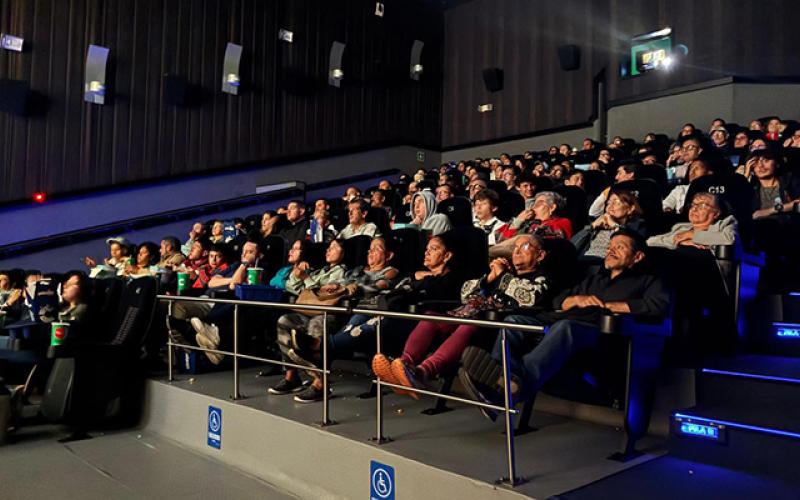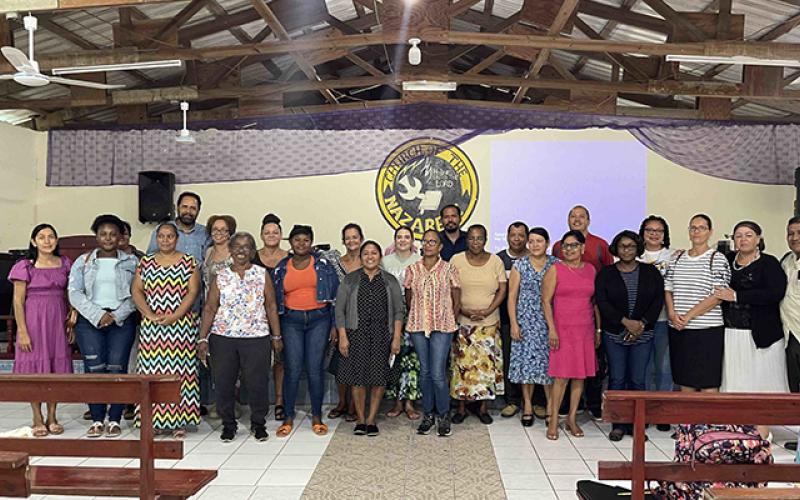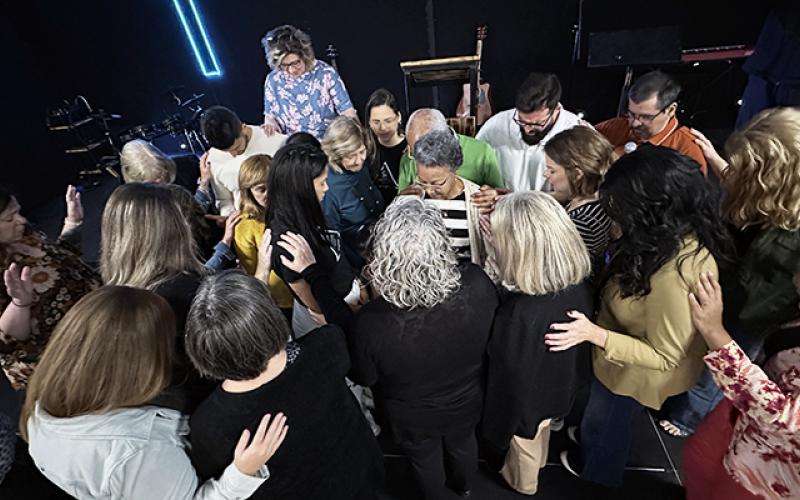
The day the refugees fed me
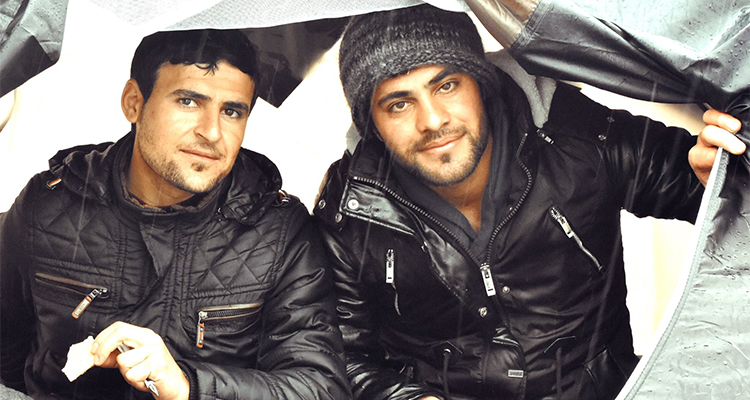
K* and his family arrived at the Bregana border crossing between Croatia and Slovenia not long after the last refugees were allowed through the border. After this, the refugees would be going a different route and no longer going through Slovenia — at least for the moment. Thousands had gone through, but now this group of 28 relatives were stuck there alone in the hot no man's land between two countries.
When K and his family arrived, they were told they were not going to be allowed across the border. They were very upset. Several of the women were crying, and the men were angry because they said they had been promised they could go through Slovenia. One of them said to me, "We've been told so many lies. We don't know what to believe anymore." They decided to just wait at the border, hoping the police would change their minds and let them cross.
I didn't know what else to do but to wait with them. Once they had gotten over the shock of being denied entry somewhere once again, I discovered them to be a very friendly group of people. A lot of them spoke English, so we were able to have great conversations.
The group included men, women, and children. In spite of a lot of media that tries to paint a different picture, this is the reality we often see on the ground. A lot of families are fleeing the terrors of war in search of freedom and safety.
I asked this group several times if they needed anything. "Do you need some water, food?" Every time I asked, they said they didn't need anything. They had enough for now. I asked one of the men, Jamil, "Do you need anything at all?" He replied, "I just want a home."
At one point I just sat down with them to talk, listen, and laugh as they joked and made the best of their difficult situation. I held one of their babies, a beautiful child, and then they started getting food out of their bags.
It wasn't a fancy lunch, mostly just apples and bananas. But they handed me an equal portion with the rest of them and asked me to join them.
For one quiet moment in no man's land, I was reminded of a universal truth. We are all people, and we all need to be loved. The world focuses upon our differences, but we really aren't that different. And in case you are wondering what was so special about eating together, these new friends come from a culture where eating together is an ultimate sign of acceptance and equality.
Jesus lived in a culture that shared this same value, and He did a lot of his greatest ministry while eating with people. It's at the table (or in this case, sitting on a hot curb) that we recognize our common humanity, as well as our common needs.
I've fed a lot of refugees, but on the day they fed me I was humbled. After about five hours the police finally let them cross the border, but for that short while time stopped and reminded me that we are all just people who share the common need of love, fellowship and a Savior.
When asked how we can pray for the hundreds of thousands of refugees fleeing across Europe, I often say this: pray that they will be treated like people.
I've often seen them treated like criminals, surrounded by police and armies with guns. I've also seen them treated like cattle, with people herding them into vehicles like cows or throwing them food at them with no sense of dignity remaining to them. A lot of people also sit around and discuss them from the comfort of their homes as a political problem. But what they often miss out on is the truly human touch.
These are people who need Jesus. A lot of them are disillusioned, running away from a militant version of their religion and are ripe for the gospel. Others are Christian brothers and sisters who need our love, prayers, and support.
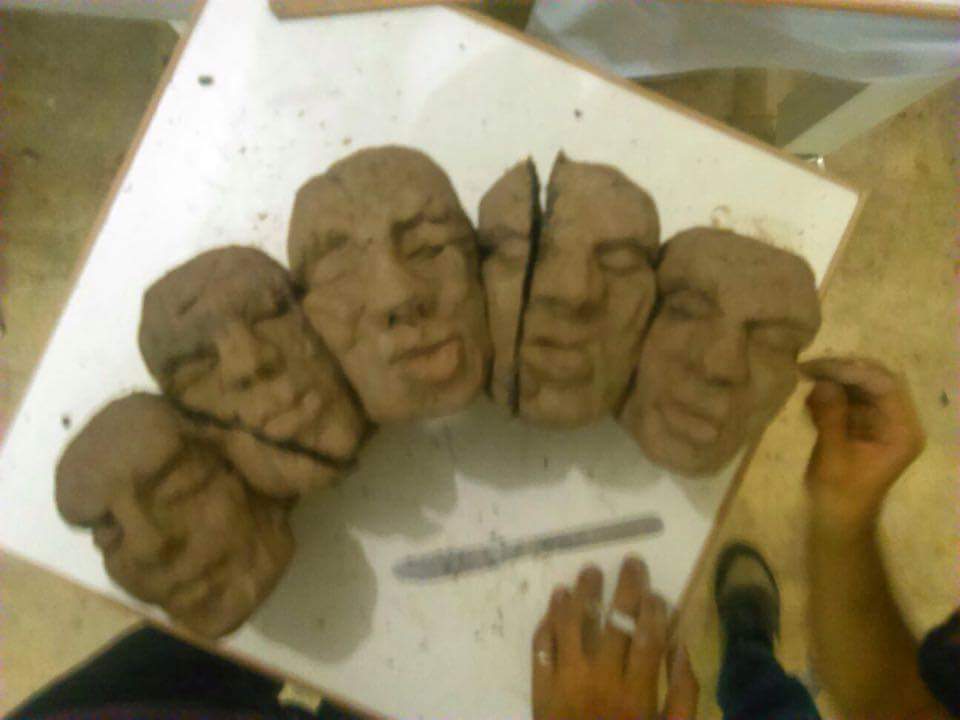 I heard from K a few days later after he and his family had made it safely to Sweden. He is an artist, and he shared with me the last piece of art he created before he left Syria. He called it “The Departed.”
I heard from K a few days later after he and his family had made it safely to Sweden. He is an artist, and he shared with me the last piece of art he created before he left Syria. He called it “The Departed.”
When he showed me the pictures of this piece of artwork, I noticed especially the broken faces. I told him I had a good idea what they represented. He replied by saying that the faces were broken because he knows that after the immigration and all the separated families, “Nobody stays whole.”
K chooses to remain anonymous, but he gave me permission to share his artwork with you on behalf of hundreds of thousands of broken people who are without a home and seeking a place of safety. Looking at these broken faces reminds me of the thousands of broken lives I see day after day. They are real people who need to be loved, and their only chance of being whole again is Jesus.
In our first conversation after he arrived in a safe place, K repeated to me what he and others said that day on the border, "Thank you so much for everything you have done for us. It means so much."
Now I know that this "thank you" is not just meant for me. It's meant for everyone who is giving of their time, money, or energy to help them. Have I seen some bad attitudes of the type the media often tries to tell us is the norm? Yes, I have seen it in a few people. But from most of the people, I just find gratitude.
*Name changed for security reasons

